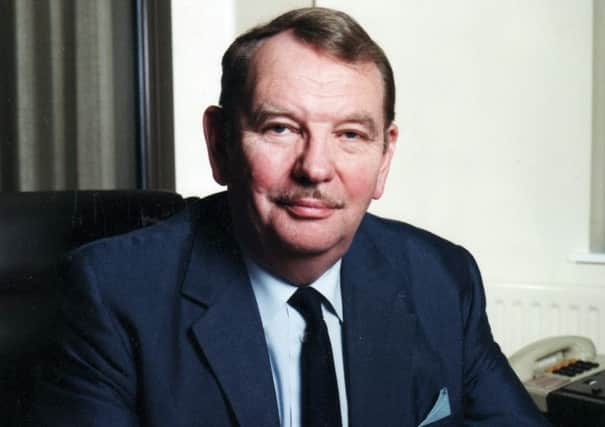Sir Robert Scholey


Forceful, plain speaking – he had a reputation for using words like sledgehammers – he had the qualities of leadership and quickness of mind to manage tectonic changes in the industry and prepare it for privatisation.
There are several explanations for his nickname, but the most convincing is that he wore a black safety helmet when on site.
Advertisement
Hide AdAdvertisement
Hide AdHe was the only child of a director of a South Yorkshire steel company which was eventually absorbed by British Steel.
Having joined the steel industry straight from school, Sir Robert applied himself to getting into Sheffield University to study engineering, by going to night school four times a week, after a working day in the English Steel Corporation’s machine shop, and later its fitting shop.
He served with the Royal Electrical and Mechanical Engineers during the Second World War and after the conflict, in 1946, he married Joan Methley whom he met on a Sheffield tram.
He took a job in United Steel’s newly-launched engineering maintenance division. Subsequently he held management positions at Samuel Fox’s Stocksbridge works and with Steel, Peech & Tozer.
Advertisement
Hide AdAdvertisement
Hide AdHe is credited with being the driving force behind the development of the Templeborough melting shop – now Magna Science Adventure Centre – creating there the biggest electric arc furnace operation in Europe.
Sir Robert left Sheffield to join the British Steel Corporation’s London head office after nationalisation, and in 1973 became BSC’s chief executive, aged 52.
He ran the company’s executive arm under the chairmanships of Sir Monty Finniston, Sir Charles Villiers, Sir Ian MacGregor and Sir Robert Haslam, and was given much of the credit for the transformation of BSC’s fortunes in those years, from losing £1bn a year to making profits in 1989-90 of £733m.
Twice passed over for the chairmanship – a decision by Lady Thatcher he had reason to resent – he was proud to prove to her that a career in the public sector had not put his thinking into a public-sector straitjacket.
Advertisement
Hide AdAdvertisement
Hide AdThe vast Ravenscraig steel plant in Motherwell, Lanarkshire, presented Sir Robert with the toughest challenge of his career.
Its future was a highly-charged political issue, but it had become chronically uneconomical and as chairman of a privatised company with responsibilities to its shareholders, Sir Robert was determined to close it. Despite fierce political pressure, he did, leaving a controversial legacy in that part of the kingdom.
He served on the board of Eurotunnel from 1987 to 1994, and as chairman of the International Iron and Steel Institute in 1989-90. He was president of Eurofer from 1985 to 1990 and of the Institute of Metals in 1989-90. He retired from British Steel in 1992.
Although working a 16-hour day, he found time to indulge an interest in history and in conversation could instantly recite the dates of Napoleon’s battles. He enjoyed opera, particularly Wagner, and was a keen marksman. Gardening was another pleasure.
He was appointed CBE in 1982 and knighted in 1987.
Sir Robert is survived by his wife Joan and their two daughters.